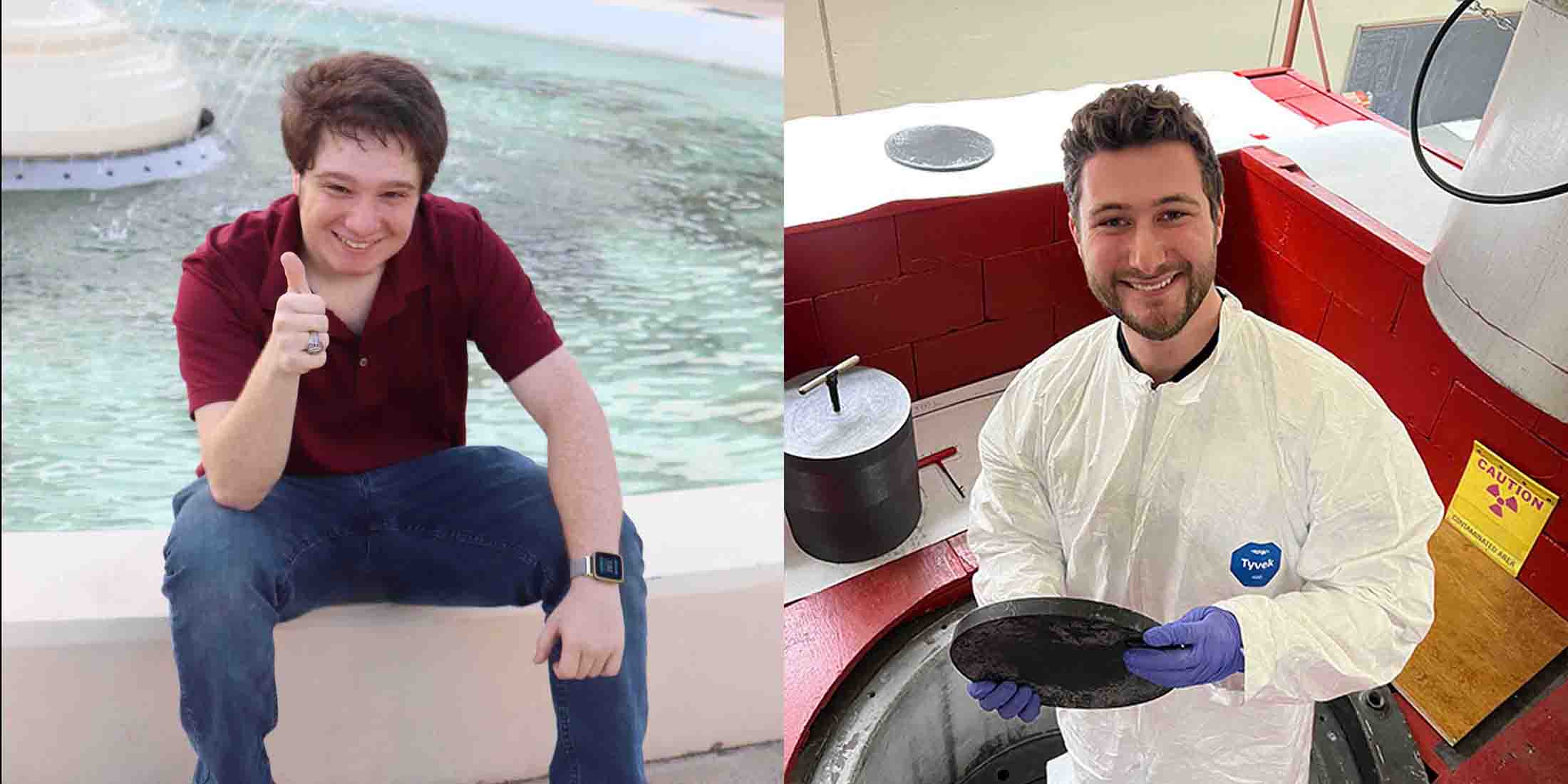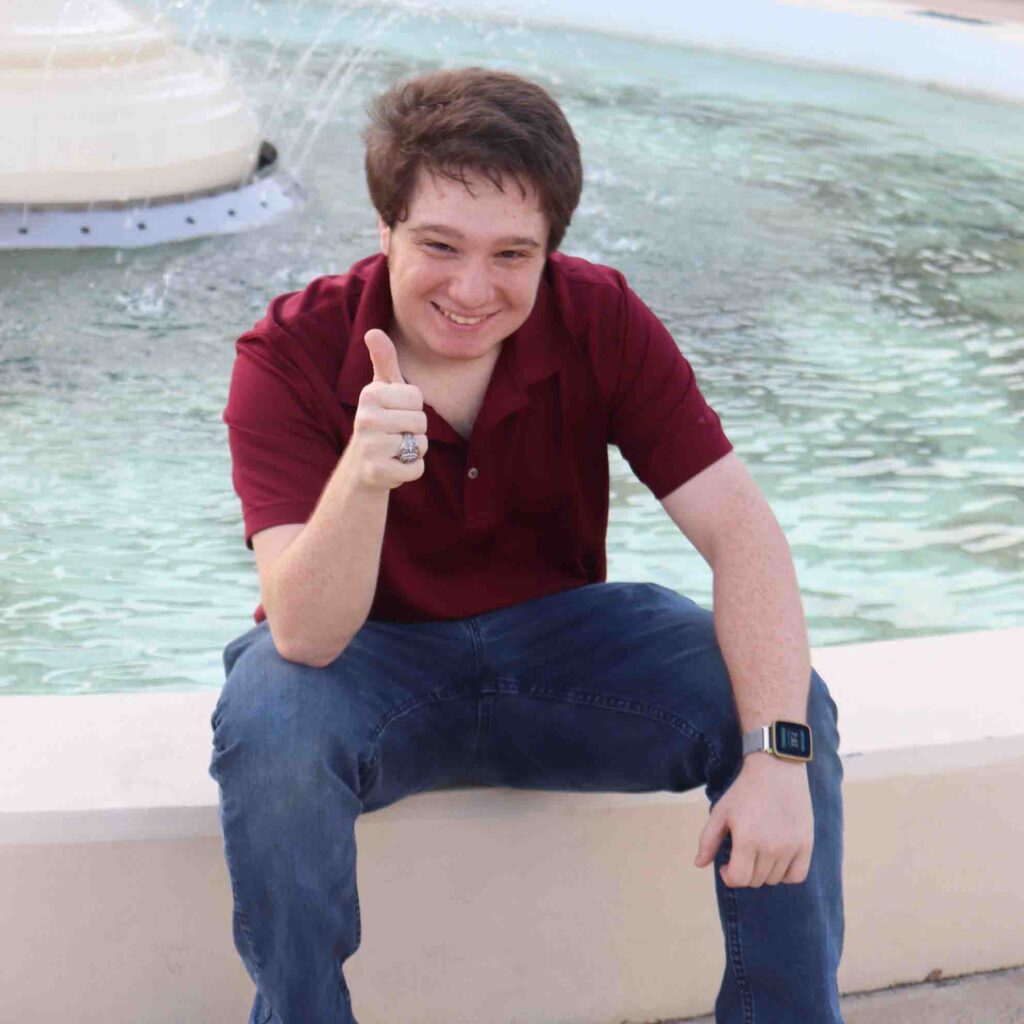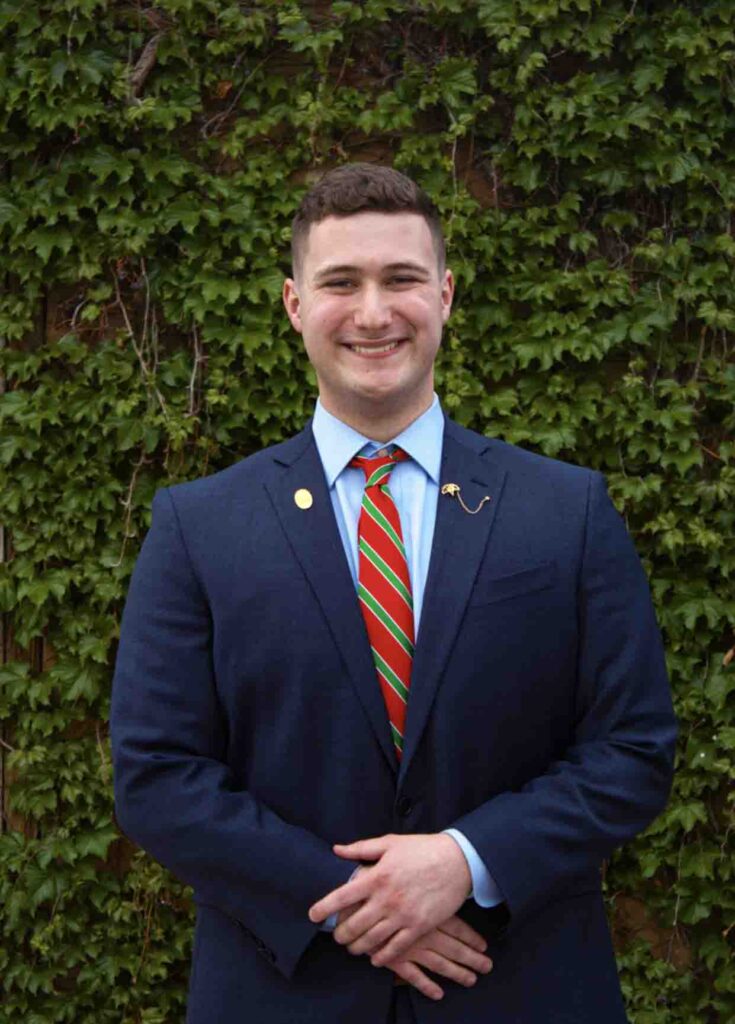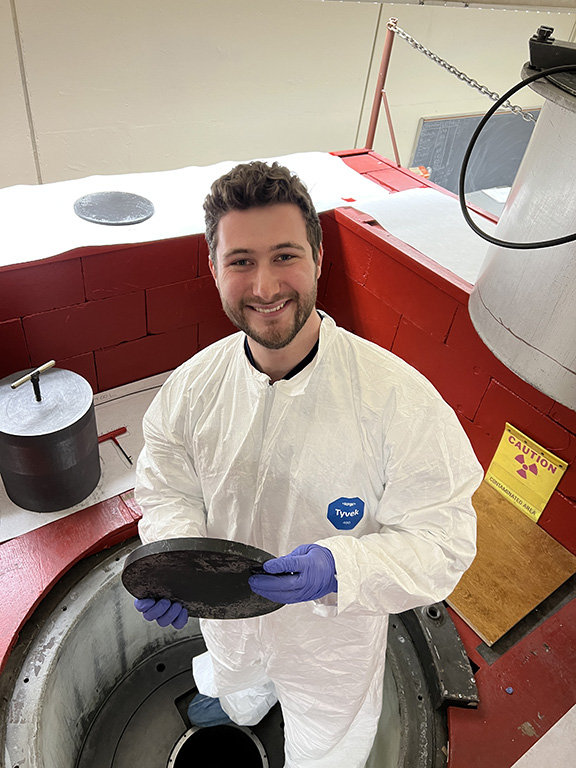
NERS graduate students awarded UNLP Fellowships
Brian Carpman, Justin Hamil, and Rowan Marchie received University Nuclear Leadership Program fellowships from the U.S. Department of Energy.

Brian Carpman, Justin Hamil, and Rowan Marchie received University Nuclear Leadership Program fellowships from the U.S. Department of Energy.
Brian Carpman, Justin Hamil, and Rowan Marchie, graduate students in the U-M Department of Nuclear Engineering & Radiological Sciences have been awarded fellowships through the U.S. Department of Energy’s University Nuclear Leadership Program (UNLP).

Undergrad: Texas A&M Unversity, Materials Science
Advisor: Prof. Stephen Raiman
Area: Materials & Radiation Effects
“I’ve always been interested in extreme materials, even from a young age, weird, I know,” said Brian. “Some of the most extreme conditions are found in nuclear engineering. I took a nuclear materials course during my undergrad and I found it interesting enough to join the professor’s research group. I have enjoyed the journey so far!”
Brian’s research currently is on the corrosion of ultra-high temperature ceramics in molten chloride salt. The eventual dream is to 3d print heat exchangers out of stuff like tungsten carbide.
“There are too many people that I’d like to thank to list here, but here are a few: My parents, some good family friends, and my entire lab group.”
“Brian is an outstanding student in the classroom and in the lab,” said Prof. Raiman. He is a tenacious tinkerer, and has a knack for finding creative solutions to problems. This fellowship will enable him the freedom to clear his own path and make important contributions to our field.”

Undergrad: University of New Mexico, Nuclear Engineering and Russian Language
Advisors: Prof. Kevin Field and Prof. Stephen Raiman
Area: Materials & Radiation Effects
Justin has been interested in the field of engineering since he was a freshman in high school. While exploring the different areas of the field, nuclear engineering caught his eye because it was the area he knew the least about. He attended nuclear engineering summer camps for high schoolers at North Carolina State University and Missouri University of Science and Technology where he got hands-on experience and cemented his desire to become a nuclear engineer.
As an undergraduate, Justin participated in several research opportunities. First, as an intern of the Air Force Research Laboratory with the U.S. Space Force at the Kirtland Air Force Base in Albuquerque. He also worked with three different professors in the University of New Mexico’s Nuclear Engineering Department.
Justin currently researches the materials characterization of plasma-facing materials for use in fusion systems. He tests many different candidate materials, prepares samples, and uses electron microscopes to determine the effects before and after irradiation.

Justin graduated from the University of New Mexico with a double major in Nuclear Engineering and the Russian Language. “Learning languages is a passion of mine,” said Justin. “I have studied Russian, Spanish, and French and I hope to translate these skills into a research setting to collaborate with scientists all over the world to advance the agenda of clean nuclear energy at home and abroad.”
“Dr. Eric Lang of the University of New Mexico’s Department of Nuclear Engineering has been instrumental in bringing me to the place I am at,” said Justin. “He has done an excellent job at preparing me for graduate school and taught me skills that will directly translate to graduate school and the working world. I could not be any more grateful for his guidance.”
“Dr. Stephen Raiman helped me with the fellowship process from day one,” said Justin. “I am incredibly grateful.”
“Justin is an outgoing and accomplished student, and the UNLP fellowship will enable him to jump-start his PhD research,” said Prof. Raiman. “We expect big things from him.”
Undergrad: University of Michigan, Major in Nuclear Engineering & Radiological Sciences, Minor in Mathematics
Advisors: Prof. Aditi Verma
Area: Policy & Climate
“What sparked my initial interest in NERS during my first few semesters at the university was how interesting and challenging the field sounded compared to other engineering options,” said Rowan. “After taking a tour of NERS during my second year, I was convinced that the field was for me and I haven’t looked back since.”
Two out-of-class research internships inspired Rowan to pursue graduate school at NERS. The first was with the Detection for Nuclear Nonproliferation Group (DNNG) in the summer of 2020 under Professor Sara Pozzi and involved optimizing the Rossi-alpha method, a neutron detection method used to estimate the criticality of near-prompt critical assemblies. The second was with Oak Ridge National Laboratory (ORNL) in the summer of 2021 and involved performing an uncertainty quantification of the Transformational Challenge Reactor (TCR), an advanced reactor design using additively manufactured parts in its core. These internships gave Rowan experience and showed the potential of computational work within NERS.
Rowan’s recent research involves performing a literature review of NERS papers and articles that are partially or fully related to the economics and costs of nuclear energy systems to get a better understanding of how economics and cost are considered and applied in these systems.
This summer, Rowan will interview reactor designers to get a better understanding of how they consider economics and costs in the design process. This research is intended to be a part of a larger project focused on understanding the relationship between the design and cost of nuclear systems and the creation of a computational tool to mitigate cost overruns for nuclear energy projects.
“I would like to thank Michael Hua, my graduate student advisor during my first NERS internship with DNNG who also helped me revise my graduate admission essays,” said Rowan. “I also would like to thank Mackenzie Warwick, the GSI of the NERS senior design project course, who was always available to provide assistance during the course, answer any questions related to NERS and graduate school, and helped get me through my last year as a NERS undergrad. Lastly, I would like to thank Professor Aditi Verma, my graduate advisor who has been an excellent joy to work with.”
“Rowan is a deep and meticulous thinker who consistently asks the right questions,” said Prof. Aditi Verma. “He has excelled in the classroom and continues to grow wonderfully as a researcher. This fellowship will enable him to explore an area of research that could significantly shape how we think about designing nuclear energy technologies.”